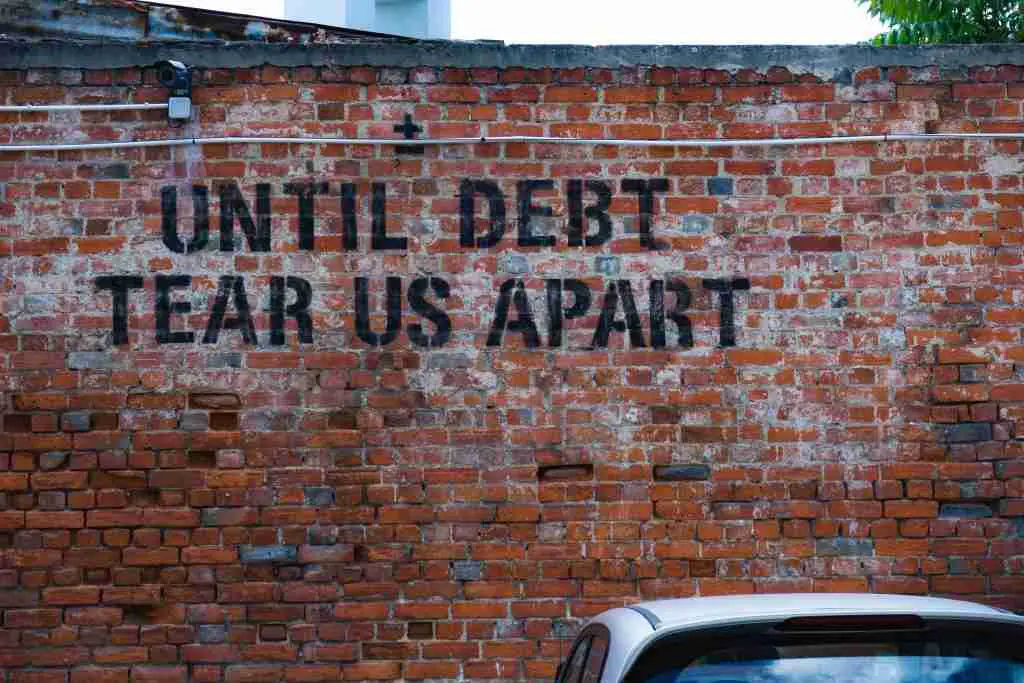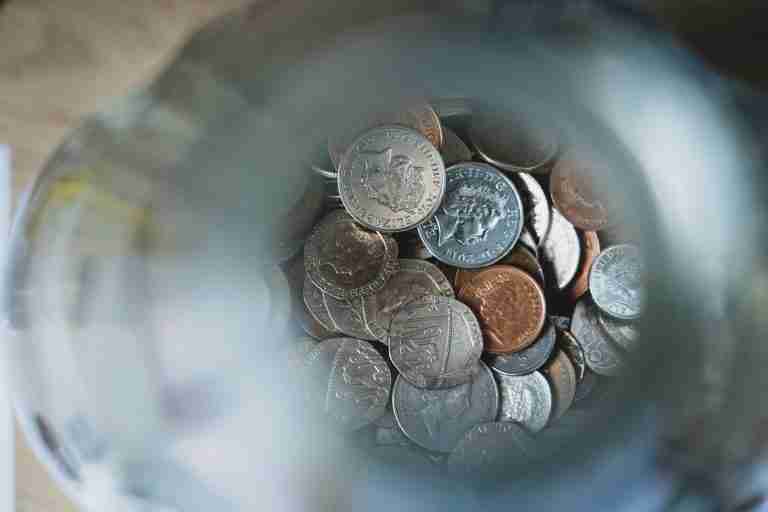How Do I Sort Out My Finances (7 simple steps to take back control)
Sorting out your finances needn’t be painful. Having a vision of your ideal life will help you better manage your time and money. Saving and investing with a long-term vision in mind is the key to becoming financially happy and sorting out your finances.
One day you’ll figure out you would like more choices, but without more money, you are a little limited to what you can do. Ah, if only you had saved more at some earlier time, then you might have had more money. If only you had invested your salary, that small or large win fall and it could have grown to an amount that would now give you more choices.
Brian Tracy uses the phrase someday Isle to emphasise that it’s always some other time day or even island where we will sort out our lives. And in this case, it’s someday Isle where I will sort out my finances.
In this article, we will cover how to sort out your finances now for a brighter financial future.
| Action | Description |
|---|---|
| 1. Track Your Income and Outgoings | Keep a record of all your income and expenses to understand where your money is going. |
| 2. Understand Your Income | Know the details of your income. This includes your salary, any bonuses, and income from other sources. |
| 3. Pay Yourself First | Set aside a portion of your income for savings before you spend on anything else. |
| 4. Set a Savings Goal | Having a specific goal can motivate you to save more. This could be for a vacation, a new car, or a house. |
| 5. Compound Interest and Your Finances | Understand how compound interest works. It can significantly increase your savings over time. |
| 6. Credit Score | Regularly check your credit score. A good credit score can help you get better terms on loans and credit cards. |
| 7. Track Your Net Worth | Regularly calculate your net worth (the difference between your assets and liabilities). This can give you a clear picture of your financial health. |

How do I sort out my finances?
To manage your money better, you need to know what is happening. More importantly what’s coming in and going out.
Now, this is where some people feel ignorance is bliss. Tackling where your money is going can be both a good and bad experience. It will highlight to you what’s important to you if you spend most of your money on beer that’s clearly what’s most important to you right now. However, this may directly clash with what you want most, i.e. more choices, to travel or work part-time.
Most online bank accounts will now do this for you showing when and from where coming is coming in and going out. Some bank accounts and apps will now also categorize where your money is going.
Managing and monitoring your spending through a budget helps you send your money to where you want it to go rather than just seeing where it went.
Money-saving expert has a great budget template as an option to consider, or you could build your own with excel.
Essential spending
In general, spending fits into one or two overall categories. Essential, i.e. without this, you would struggle to survive/maintain your lifestyle. If you did not pay them immediately, something would go wrong quickly.
These costs are also often referred to as fixed costs. This means they are primarily paid at a set time every month and settled in their value. It’s not to say you couldn’t find them cheaper somewhere else or reduce the costs; it’s just that it’s difficult to get away from them altogether. There may also be a minimum you can get to, but you can’t get lower. You can only reduce your food costs so far before you start to go hungry.
| Housing | Mortgage payments, rent, taxes |
| Transport | Car, Bus, Train, metro etc |
| Food | Groceries, tv dinners etc |
| utilities | Electricity, gas, internet |
| Insurance / health | Health/life insurance/income protection |
| Saving and investing | Cash, stocks and shares. ISA and Pensions |
| Debt management | Mortgages, credit cards, car and personal loans |
Some of the above you could look for cheaper options like cheaper supermarkets or less branded food items. You could also try to haggle more competitive rates on your broadband or electricity costs with current providers or move to a rival company.
Discretionary or non-essential
Some of this can be a matter of opinion. What is non-essential to one person might be essential to another. Some people will feel their gym membership is crucial to health and social reasons others might think you can do most of this free in the park. But there we are personal finance is personal.
| Entertainment / Enjoyment | Eating or drinking out/take away, cinema, alcohol (for some essential), hobbies and interests, cable TV, gym or club membership. |
Stuff that affects your finances
These costs can also be called variable costs as to how much you spend on them is up to you. You can have an expensive night out or a cheaper night in. It’s your choice the gym membership level you want or the clubs you join. Do you need the full cable, prime and Netflix packages, or can you get rid of them? How much tv can you watch?
Sorting out some of your discretionary spending might have a huge affect on your finances.
1. Track your income and outgoings
Have a go at setting a plan for all your money and where you want it to go. Sometimes also called a budget.
How much do you want to spend on food, travel, clothing?
Do you shop at the most expensive places? Can you go elsewhere for cheaper?
Do you shop every day or bulk buy? Does the frequency affect how much you spend overall?
Once you analyze these, you might see a pattern. If you are buying something, every day is that because you just have enough at home or because you walk past the store and so spend money every day because it’s there?
Are you throwing food away because you have too much of it, or is it going off? This might be telling you; you are not using your money wisely.
2. Understand your income
Do you understand what you are getting paid?
Not just the overall figure but the monthly and daily rate? Because if you understood what you got paid a day, you might realize who much certain habits or expenses are costing you. i.e. that night out with friends cost you 3-4 days of work.
Being clear on your income and deductions for tax or work-related benefits will help you figure out what work is earning and costing you.
You can figure out what your monthly, daily and hourly wages are here tax and daily hourly rate. It might come as a surprise what you make a day or per hour. Now factor in the time it takes you to commute, and any overtime, you will see your hourly rate drop further.
The excellent book Your Money or Your life by Viki Robin goes into great detail to determine what work costs you with commuting, extra hours and prep time.
3. Pay yourself first
This principle is one of the greatest personal finance hacks ever. To pay your self first ensures that you can start building your wealth and staying out of debt before you start making someone else rich.
Automate your savings to save a set amount or percentage of your wages the day you get paid. This way almost guarantees you are the first to get paid for all your work, not the pub, Netflix or the gym.
Doing it this way will ensure you save money and then spend what is left. Waiting to the end of the month to say will mean you may or may not save as there is often too much month left at the end of your money.
4. Set a savings goal to boost your finances
Setting a goal can help with focusing your savings. A goal can be a fixed amount or percentage or a specific thing you want to spend the money on. This will help you be clear why you are saving.
A goal can help keep you on track but also track your progress to reaching the goal.
5. Compound interest and your finances
Compound interest is one of the secret weapons of saving and growing wealth. Earning interest on your interest. The more you save and invest the more compounding your money can do, earning interest on interest and the money you keep adding.

If you have debts, especially high-interest debt typically credit cards or payday loans, then it’s going to be essential to devise a plan to deal with it. With such high-interest rates, these debts are going to cripple your journey to financial happiness.
6. Credit score
It might be useful to know your credit score. This will help you understand how others rate your creditworthiness. It could also highlight any problems you might have with previous addresses, loans or people connected to you that are affecting your credit score.
A credit score is now freely available form providers like Clearscore, Moneysupermarket and Experian amongst others.
7. Track your net worth
Do you know what you are worth?
You can figure out your net worth by adding up all your savings and investments and subtracting all your debts. This will help you see how you are doing. After all your years of working what you are worth might be the wakeup call you need.
Once you have started to gather the above information, you will be well on your way to sorting our your finances.
Start now, get perfect later
Whatever position you are in better to start where you are and go from there. Start gathering your financial situation data and then see the gap to where you want to go.
If youre thinking about who will sort out my finances, you need to start gathering your own data.
FAQ: How to sort out my finances
How do I organize myself financially?
Tracking your money coming in and going out: Use an app or spread sheet to show what’s happening.
Get yourself a folder and file your paperwork into relevant sections.
Set a spending plan (or a budget)
Write a GAME Plan to detail what’s your goals are, actions you need to take, what means you current have or need to create and then execute the plan.
Who can help sort out finances?
-YOU can do it- get yourself financial educated.Read books, listen to podcasts, watch YouTube videos.
-You could work with a financial coach to help, support, guide and challenge you to get to grips with your finances.
-You could work with a financial advisor – but best to get some education beforehand so you know what they are talking about.
How to sort your money out?
Sort your money out. This is the single most important thing you can do to improve your financial situation and increase your chances of achieving financial independence.
There are a number of basic steps that you can take to get your finances in order.
These include creating a budget, tracking your expenses, paying off debt, and saving for retirement.
If you’re unsure where to start, talking to a financial planner or tax professional who can help guide you in the right direction might be helpful. Taking charge of your finances and getting them under control will put you on course for a bright financial future.
How to turn your finances around?
If you’re looking to turn your finances around, there are a few key things you can do.
First, take a close look at your income and expenses. Where can you cut back on spending? Maybe there are some luxuries you can live without or subscription services you can cancel. Every little bit helps!
Next, make a budget and stick to it. Track where every dollar goes and make adjustments as needed. This will help you stay on top of your finances and see where your money is going each month.
Finally, start saving! Even if it’s just a little bit each month, putting money into savings is crucial. This will give you a cushion in case of an emergency and help you reach financial independence asap.
Do I need someone to manage my money?
No, having someone manage is unnecessary unless you have a very complicated financial situation, but it could be helpful at certain points.
You can manage your money effectively with proper financial education and discipline.
However, a financial planner or coach or coach can provide expertise, guidance, and accountability, especially if you’re facing complex financial situations or need help reaching your goals.
Ultimately, the decision depends on your comfort level, financial knowledge, and the complexity of your financial situation.
What is the 50 30 20 rule?
The 50/30/20 rule is a popular personal finance guideline that recommends dividing your after-tax income into three categories: 50% for necessities, 30% for wants, and 20% for savings and debt repayment. This rule can help you prioritize your spending and build a sustainable budget.
How do I get my personal finances in order?
Getting your personal finances in order may seem daunting, but there are some practical steps you can take to get started:
Create a budget: Track your income and expenses, and create a budget that aligns with your financial goals.
Reduce expenses: Identify areas where you can cut back on spending, such as eating out or subscription services.
Increase income: Consider ways to increase your income, such as getting a side job or negotiating a raise.
Pay off debt: Prioritize paying off high-interest debt to reduce interest charges and improve your credit score.
Build an emergency fund: Set aside money for unexpected expenses like car repairs or medical bills.
Save for the future: Start saving for retirement and other long-term goals, such as a down payment on a home.
By taking these steps, you can begin to gain control of your personal finances and achieve your financial objectives.
Can I hire someone to organize my finances?
You can hire a financial planner, coach, accountant, or bookkeeper to help you organize your finances. These professionals can provide valuable guidance on budgeting, investing, tax planning, and other financial matters.
They can also help you set and achieve your financial goals, monitor your progress, and adjust your strategies as needed.
Before hiring someone, do your research and make sure to choose a reputable and experienced professional who understands your needs and goals. Additionally, consider the cost of hiring someone and ensure it fits your budget.
How can I fix my finances fast?
Fixing your finances quickly may seem challenging, but there are a few steps you can take to make a positive impact:
Create a budget: Identify your sources of income and expenses, and create a budget that aligns with your financial goals.
Cut back on unnecessary expenses: Review your spending habits and look for areas where you can reduce expenses, such as eating out or subscription services.
Increase your income: Consider ways to increase your income, such as getting a side job or negotiating a raise.
Pay off high-interest debt: Prioritize paying off high-interest debt to reduce interest charges and improve your credit score.
Build an emergency fund: Set aside money for unexpected expenses like car repairs or medical bills.
Sell unused items: Sell items you no longer need or use to generate additional income.
By taking these steps, you can quickly improve your financial situation. Remember, small changes can add up to significant improvements over time. Additionally, consider seeking the advice of a financial professional to help you develop a more comprehensive plan.
Take Action on your life and finances now!
Are you in your 40s and feeling the financial squeeze? You’re not alone. This can be a challenging time financially, as you may be:
- Juggling mortgage payments 🏠
- Managing family expenses 👨👩👧👦
- Planning for retirement 🏖️
- Saving for your children’s college education 🎓
- Paying off lingering debts 💳
It’s time to stop the stress and start your journey to financial happiness. Financial coaching can provide the tools and guidance you need to navigate these challenges. With coaching, you can:
- Create a realistic and manageable budget 💼
- Develop a clear and achievable savings plan 🐖
- Learn effective strategies for debt repayment 🔄
- Understand and plan for future financial needs 📈
- Start saving and investing for financial independence 💰
- Gain peace of mind knowing you’re on the right track 😌
Don’t let financial worries cloud the prime of your life. Schedule a call with me today at Financially Happy Money Coaching, and let’s turn your financial stress into financial success!
Together, we can build a plan that aligns with your goals and sets you on a path to financial freedom. Let’s make your money work for you, not vice versa. 💪💰






